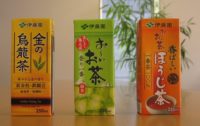Importers must ensure their foreign manufacturers are in compliance with the Preventive Controls rule. Here are five key actions that can help.
If you are an importer of food intended for consumption in the U.S., you know by now that under the Food Safety Modernization Act (FSMA), you must develop Foreign Supplier Verification Programs (FSVPs) for each food you import and for each foreign supplier who produces the food. But do your foreign manufacturers of those foods know that they must be in compliance with the Preventive Controls (PC) rules?
Remember that FSMA stands for the Food Safety Modernization Act. The U.S. Food and Drug Administration (FDA) issued the final rules for Good Manufacturing Practices and Risk-Based Preventive Controls for Human Foods and Animal Foods in September 2015, and the first compliance date was September 2016. FDA issued the FSVP rule in November 2015, and the first compliance date was May 2017.
Training is essential for importers and their foreign manufacturers to understand FSMA requirements, and Food Safety Preventive Controls Alliance (FSPCA) courses are available from lead instructors. The FSPCA was established in 2011 as part of a grant from FDA. The FSPCA has developed curricula for training, preventive controls for both human and animal foods, often called the Prevntive Controls-Qualified Individual (PCQI) courses, and FSVP. The FSPCA curriculum succinctly states in its FSVP Module for Preventive Controls that "in addition to verifying their foreign supplier is following the Preventive Controls rules, U.S. importers of food are required to develop and maintain and follow an FSVP for each type of food they import, including Hazard Analysis, Evaluation and Approval of Supplier, Determination of Verification Activities, Correct Action, Reevaluation, Identification of FSVP Importer at Entry, and Documentation and Recordkeeping."
More and more as we help importers prepare their FSVPs, we find that many of their foreign manufacturers believe that Hazard Analysis and Critical Control Points (HACCP) is enough. An existing Hazard Analysis under HACCP may be appropriate for the evaluation of process preventive controls, but other preventive controls must also be considered in the Hazard Analysis: sanitation and supply chain PCs for both human and animal foods, but also allergen PCs for human food. Moreover, management components of monitoring, corrective action, verification, and recordkeeping must be described for all preventive controls, not just process PCs.
We also find that many importers and their foreign manufacturers are not aware that the FDA deadlines for PC compliance for both domestic and foreign manufacturing facilities have already passed for all human food manufacturers except qualified facilities. Animal food manufacturers with fewer than 500 employees face a Preventive Controls rule compliance deadline very soon in September 2018. The FSPCA FSVP course curriculum also emphasizes the importance of early communication along the supply chain. Although it may no longer be ‘early’ with the deadlines either passed or right around the corner, it is better late than never for importers to start this communication with their suppliers and ensure they lose no more time in getting a PCQI trained and able to move forward with compliance.
A PCQI is required by FSMA. This person must understand and be able to carry out all of the duties of a PCQI in the Preventive Controls rules for food, whether it be food for humans or animals. Each manufacturing site—domestic or foreign—needs a PCQI to prepare a food safety plan and oversee its implementation per the FDA rules.
FDA has been inspecting facilities and importers since the first compliance dates and has ramped up inspections over the last year. FDA has explained that for now it is "educating" while it "regulates," but this will not go on forever. Thus, if you are an importer and are running late in starting your compliance program, it’s time to get moving with your FSVP program, including ensuring your foreign manufacturer is in compliance with the applicable PC rule. Similarly, if you are a processor in the U.S., you can elect to use your supply chain program for approval of foreign suppliers and food, but have you ensured your foreign supplier is in compliance with the applicable rule?
A few key actions will get you underway:
-
Request the Foreign Supplier’s Food Safety Plan and Evidence of Qualifications of Their PCQI
First, request your foreign manufacturer’s food safety plan and evidence of qualifications of their PCQI, who is required to develop and implement the food safety plan.
Remind them that their HACCP plan is only part of what is required under the PC rule. Also, remind them that a third-party certification audit may not be directed at the PC rule and thus may not be adequate in verifying their food safety plan and preventive controls.
-
Remind Your Foreign Supplier to Take a PCQI Course On-Site or Online
Request their PCQI’s qualifications. If he or she has not had a preventive controls course, recommend one be taken. Some lead auditors in the U.S. are offering virtual online courses and making them available in time zones convenient for foreign suppliers. Emphasize that your foreign supplier take an official course led by a lead instructor, delivering the "Standardized Curriculum" developed by FSPCA and recognized by FDA.
Simple Compliance Solutions, LLC has over 36 years of hands-on food safety experience in large-scale food manufacturing and is a pioneer in offering FSPCA PCQI training for human food and animal food, both virtually and interactively. Times for online training are convenient not only in the continental U.S. but also in other time zones. including Europe, and arrangements can be made for time zones in Asia
-
Take an FSVP Course
Ensure that you—as the importer—are prepared to write an FSVP for each food and foreign supplier (or a supply chain control program if you are an importer who is a processor). Simple Compliance Solutions has been delivering FSVP training online since mid-2017, or can provide training privately and on-site. -
Consider Outside Help
If your staff is limited or you are concerned about getting the implementation done right, an experienced consultant can help you or your supplier conduct a gap analysis of an existing food safety program against the new rules to determine what is already available and what is needed, both for your FSVP and foreign manufacturer’s food safety programs. There may be gaps in even the best food safety program. -
Be Sure You Don’t Fall Under an Exemption or Modified Requirements
If you are an importer, ensure you understand where the full standard requirements apply to you and where you may fall under an exemption or modified requirements. You likely must perform a Hazard Analysis on your imported food, evaluate and approve the foreign supplier, and determine and conduct verification activities, but there are exceptions! Here again, Simple Compliance Solutions, LLC, which has over 36 years of hands-on experience with international compliance, offers FSPCA FSVP training to help you understand what you need to do.
As an experienced consultant, Simple Compliance Solutions, LLC, can guide your process with ease and help your foreign suppliers understand what you as an importer need from them for their particular product and processing. A special short module is available and can be presented virtually to your foreign suppliers to give them a flavor of what you need as an importer.
FDA is already paying visits to check the FSMA compliance of FSVP importers and processors, so don’t delay; book your FSVP training, ensure your foreign supplier books PCQI training for Human or Animal Food, and consider enlisting an experienced consultant to expedite your compliance pathway.

Rachel Montgomery is an FSPCA Lead Instructor (Human Foods Certificate # 32c592bd, Animal Foods Certificate # 1bd2c691, Foreign Supplier Certification Programs, FSVP, Certificate # f3830814), with over 30 years of experience as a food safety executive in large-scale manufacturing. Montgomery is the Principal of Simple Compliance Solutions, LLC, and she is a Registered Microbiologist (National Registry of Certified Microbiologists). Simple Compliance Solutions, LLC provides FSPCA PCQI and FSVP training, and also consulting services for food manufacturers and importers. Visit FSMAComplianceTraining.com for more information, or email RMontgomerySCS@gmail.com.


![safer employee behavior[1].jpg](https://www.food-safety.com/ext/resources/fsm/cache/file/65FFAAC8-D192-4FCC-AFD5C0009630D850.jpg?height=200&t=1611014276&width=200)

